-
Between goals and the cups
The Copa America and the Euro Cup are coming to an end and deserve a reflection, even if this is just a grain of sand in a wave that has moved multitudes on Planet Soccer.
-
Biden torpedoes access to asylum at the U.S. Southern Border
The new Executive Order comes during a period of rising migration across the hemisphere.
-
Pioneers for Communism: Strive to be like Che
The French philosopher Jean-Paul Sartre once called Ernesto ‘Che’ Guevara the “most complete human being of our age.”
-
Hybrid wars in Latin America
Between June 13 and 15, the G7 Leaders Summit, the organization responsible for the neocolonial and financialist policies implemented at a global level, will be held in the Apulia region, in Italy.
-
From PropOrNot to New Lines: How Washington is weaponizing media
If you read the Wikipedia entries for many alternative media outlets, they are written off as fringe conspiracy websites pushing debunked foreign propaganda. MintPress News, for example, is described as a “far-left news website” which “publishes disinformation and antisemitic conspiracy theories.”
-
Eco-socialism to fight climate change
With Lima failing to tackle critical issues on global warming, Bolivia outlines socialist project to save the planet.
-
Latin America responds with unanimous condemnation to Ecuador’s storming of the Mexican Embassy in Quito
Latin American and Caribbean leaders and governments from across the political spectrum have condemned the incursion into Mexico’s embassy as a grave violation of international law.
-
Internationalist Doctors: A conversation with Vanessa Almeida and John Chikuike Ogbu
Two students from Venezuela’s ELAM medical school talk about becoming physicians in the service of the people.
-
“Letter to the People for the Integration of Latin America and the Caribbean” launched at Foz do Iguaçu conference
From February 22 to 24, 4,000 people from more than 20 countries gathered in Foz do Iguaçu for the Conference on the Integration of Latin American and Caribbean Peoples
-
Herbert Matthews’ great interview, sixty-six years later
“Without the press, Fidel Castro would be no more than an outlaw… isolated and ineffective,” said Herbert Matthews, who, as a profound connoisseur of Cuban and Latin American affairs, suspected that behind the iron censorship ordered by Batista in Cuba, there was a well-kept secret that was waiting to be told.
-
The subversive truth: The incomplete feminist revolution
In her latest column, VA’s Andreína Chávez explores the contrast between grassroots feminism and women’s demands versus government-led initiatives.
-
Why Latin America and the Caribbean stand with Palestine: Israel viewed as U.S. proxy
The countries of Latin America and the Caribbean, with a few notable exceptions, have been critical of Israel’s ongoing campaign of genocide in Gaza. Perhaps more than any other region, they have expressed their solidarity with Palestine. Most recognize that the partnership between U.S. imperialism and Israeli Zionism applies not only to Palestine, but also […]
-
U.S., Big Oil exploit Guyana border dispute to attack Venezuela
Until recently Guyana was the third-poorest country in Latin America. U.S. business journals have been painting a picture of Guyana potentially becoming the richest country in Latin America.
-
ExxonMobil wants to start a war in Latin America
It is clear that the Venezuelans who came to cast their vote on December 3 in a referendum on the Essequibo region saw this less as a conflict between Venezuela and Guyana and more as a conflict between ExxonMobil and the people of these two Latin American countries
-
Latin America meets to end U.S. hostile policies that encourages migration
The humanitarian crisis on the U.S.-Mexico border is growing by the day, without the United States seeking alternatives with the people of the south that would help put a stop to the illegal arrival of migrants.
-
Humor in the headlines over China in Latin America
Apparently in a grave threat to U.S. national security, the president of Honduras attended a state banquet and actually ate Chinese food. What’s next for the country the ‘Post’ affectionately describes as “long among the most docile of U.S. regional partners?”
-
Fidel
The Commander of the Cuban Revolution is, without a doubt, one of the indispensable figures in the history of the Americas and this explains, in part, the permanent symbolic assassination to which his figure was and is subjected.
-
Dossier no. 67: Dependency and Super-exploitation: The Relationship between Foreign Capital and Social Struggles in Latin America
In the different countries of the world, capitalism is shaped and consolidated not only by the general logic of this mode of production, but also by the social, historical, and cultural conditions of each country. The way each country and region understand the forms of accumulation and expansion of capitalism is fundamental to the class struggle.
-
Hate is taught, whereas love is automatic
VA writer Andreína Chávez takes stock of worrying attacks against the LGBTQI+ community and argues that the Bolivarian Process should not let them fester.
-
200 years of the Monroe Doctrine: History and present
The Monroe Doctrine served Washington to declare unilaterally and as if it were a divine right, protector of the American continent, letting the rest of the world know where its zone of influence, expansion and predominance resided.






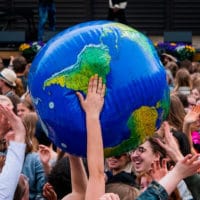
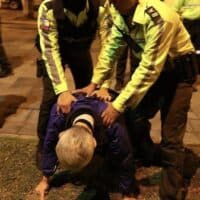

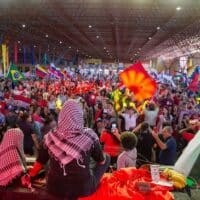
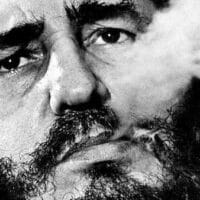

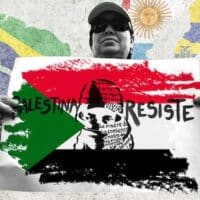
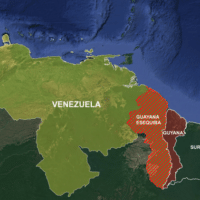
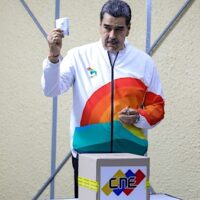
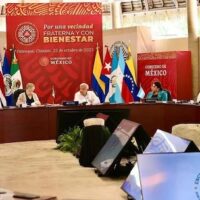
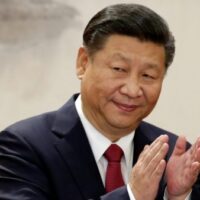
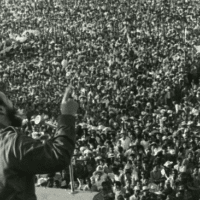
![Marini, Ruy Mauro. Ruy Mauro Marini: “Dialética da dependência” e outros escritos [Ruy Mauro Marini: ‘The Dialectics of Dependency’ and Other Writings]. Organised by Roberta Traspadini and João Pedro Stedile. São Paulo: Expressão Popular, 2005.](https://mronline.org/wp-content/uploads/2023/08/Screenshot-2023-08-08-at-75917-AM-200x200.png)

